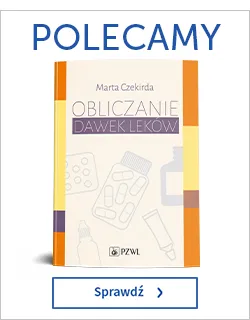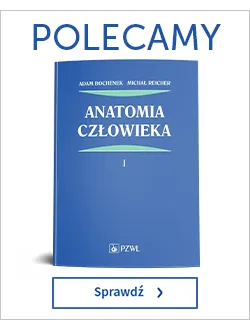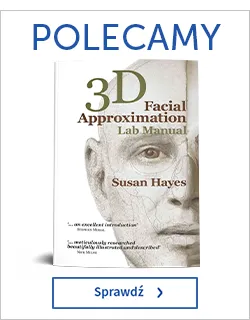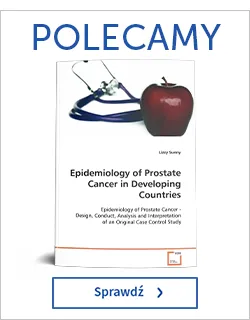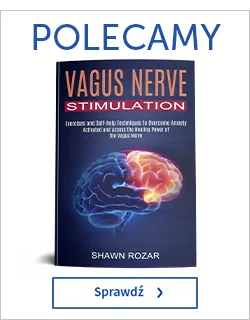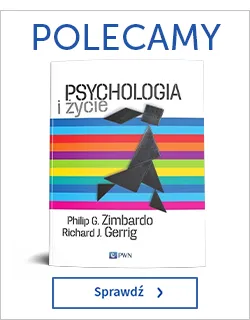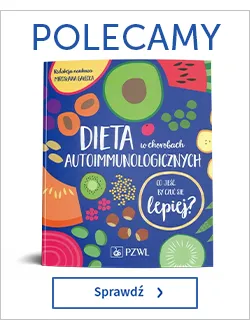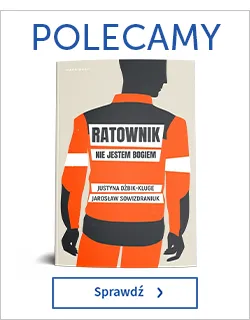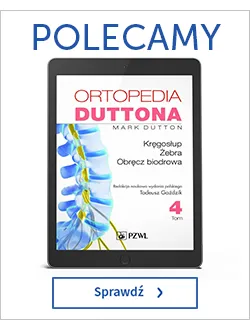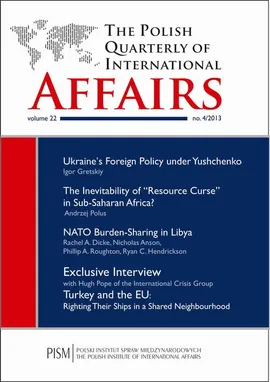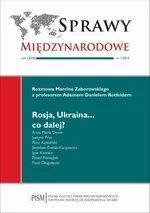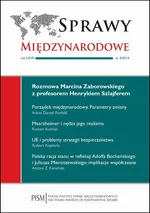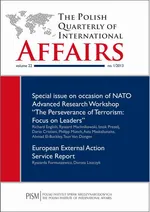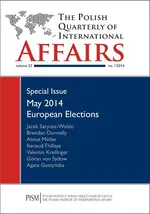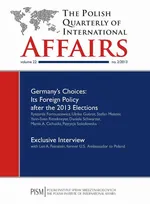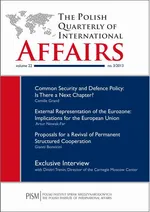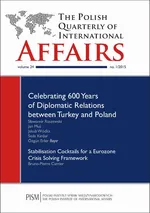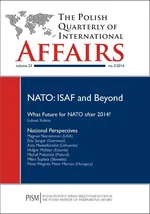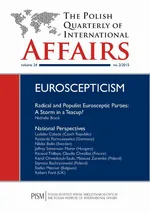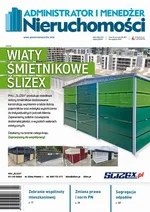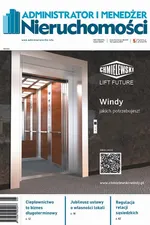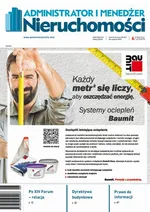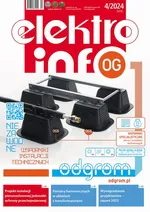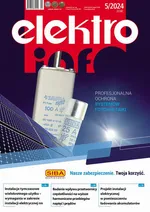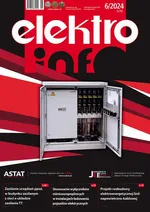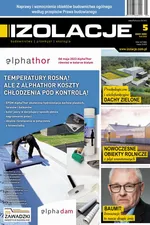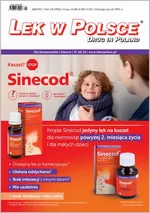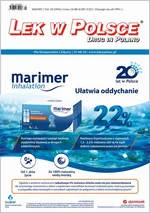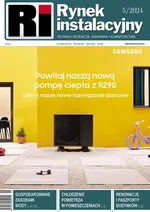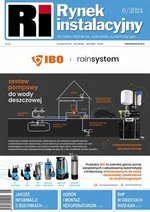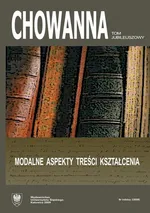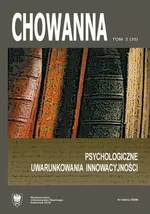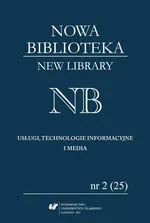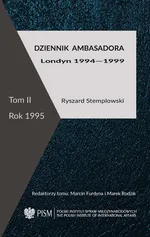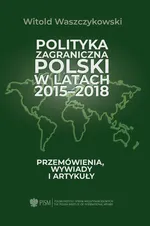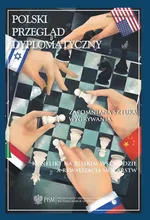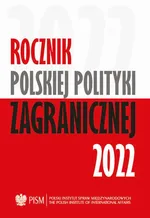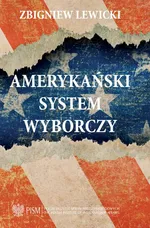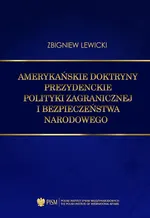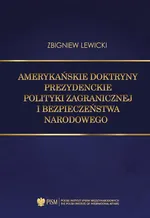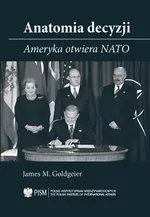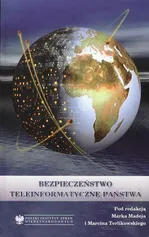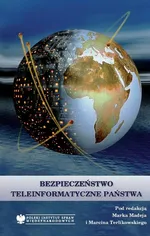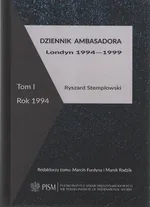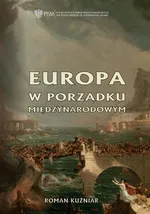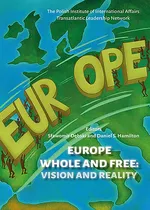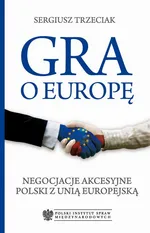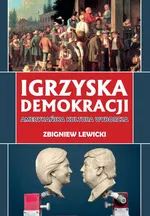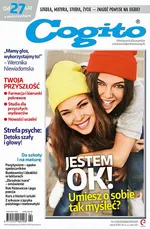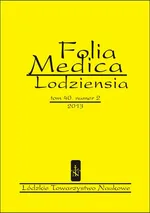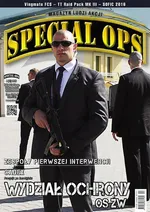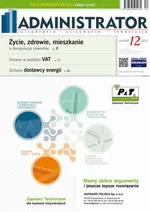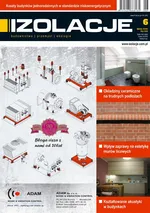- Kategorie:
- Redakcja: Kacper Rękawek, Marcin Zaborowski
- Język wydania: ??angielski_pl_PL??
- ISSN: 1230-4999
- Liczba stron: 140
-
Sposób dostarczenia produktu elektronicznegoProdukty elektroniczne takie jak Ebooki czy Audiobooki są udostępniane online po uprzednim opłaceniu (PayU, BLIK) na stronie Twoje konto > Biblioteka.Pliki można pobrać zazwyczaj w ciągu kilku-kilkunastu minut po uzyskaniu poprawnej autoryzacji płatności, choć w przypadku niektórych publikacji elektronicznych czas oczekiwania może być nieco dłuższy.Sprzedaż terytorialna towarów elektronicznych jest regulowana wyłącznie ograniczeniami terytorialnymi licencji konkretnych produktów.
-
Ważne informacje techniczne
-
Minimalne wymagania sprzętowe:
- procesor: architektura x86 1GHz lub odpowiedniki w pozostałych architekturach
- Pamięć operacyjna: 512MB
- Monitor i karta graficzna: zgodny ze standardem XGA, minimalna rozdzielczość 1024x768 16bit
- Dysk twardy: dowolny obsługujący system operacyjny z minimalnie 100MB wolnego miejsca
- Mysz lub inny manipulator + klawiatura
- Karta sieciowa/modem: umożliwiająca dostęp do sieci Internet z prędkością 512kb/s
-
Minimalne wymagania oprogramowania:
- System Operacyjny: System MS Windows 95 i wyżej, Linux z X.ORG, MacOS 9 lub wyżej, najnowsze systemy mobilne: Android, iPhone, SymbianOS, Windows Mobile
- Przeglądarka internetowa: Internet Explorer 7 lub wyżej, Opera 9 i wyżej, FireFox 2 i wyżej, Chrome 1.0 i wyżej, Safari 5
- Przeglądarka z obsługą ciasteczek i włączoną obsługą JavaScript
- Zalecany plugin Flash Player w wersji 10.0 lub wyżej.
-
Informacja o formatach plików:
- PDF - format polecany do czytania na laptopach oraz komputerach stacjonarnych.
- EPUB - format pliku, który umożliwia czytanie książek elektronicznych na urządzeniach z mniejszymi ekranami (np. e-czytnik lub smartfon), dając możliwość dopasowania tekstu do wielkości urządzenia i preferencji użytkownika.
- MOBI - format zapisu firmy Mobipocket, który można pobrać na dowolne urządzenie elektroniczne (np.e-czytnik Kindle) z zainstalowanym programem (np. MobiPocket Reader) pozwalającym czytać pliki MOBI.
- Audiobooki w formacie MP3 - format pliku, przeznaczony do odsłuchu nagrań audio.
-
Rodzaje zabezpieczeń plików:
- Watermark - (znak wodny) to zaszyfrowana informacja o użytkowniku, który zakupił produkt. Dzięki temu łatwo jest zidentyfikować użytkownika, który rozpowszechnił produkt w sposób niezgodny z prawem.
- Brak zabezpieczenia - część oferowanych w naszym sklepie plików nie posiada zabezpieczeń. Zazwyczaj tego typu pliki można pobierać ograniczoną ilość razy, określaną przez dostawcę publikacji elektronicznych. W przypadku zbyt dużej ilości pobrań plików na stronie WWW pojawia się stosowny komunikat.
The Polish Quarterly of International Affairs 4/2013
(ePrasa)-
Druk: Warszawa, 2013
-
Wydanie/Copyright: wyd. 4
-
Autor: Marcin Zaborowski
-
Redakcja naukowa: Kacper Rękawek, Marcin Zaborowski
-
Wydawca: Polski Instytut Spraw Międzynarodowych
-
Formaty:
ePub mobi PDF (Watermark)WatermarkZnak wodny czyli Watermark to zaszyfrowana informacja o użytkowniku, który zakupił produkt. Dzięki temu łatwo jest zidentyfikować użytkownika, który rozpowszechnił produkt w sposób niezgodny z prawem. Ten rodzaj zabezpieczenia jest zdecydowanie najbardziej przyjazny dla użytkownika, ponieważ aby otworzyć książkę zabezpieczoną Watermarkiem nie jest potrzebne konto Adobe ID oraz autoryzacja urządzenia.
The Polish Quarterly of International Affairs 4/2013
"The Polish Quarterly of International Affairs" jest anglojęzycznym kwartalnikiem Polskiego Instytutu Spraw Międzynarodowych poruszającym kwestie Europy Środkowej i Wschodniej. Poprzez publikowane w nim artykuły dotyczące współczesnych wydarzeń, stanowi forum do analiz i debat na temat spraw międzynarodowych.
Każde wydanie zawiera zbiór autorskich artykułów poddanych ocenie „peer review”, a także recenzje książek.
"The Polish Quarterly of International Affairs" is the English language journal and has a Central and Eastern European focus. It provides a forum for the analysis and debate of international affairs through a collection of original, peer reviewed articles on a contemporary theme.
SPIS TREŚCI
ARTICLES
Igor Gretskiy
Ukraine’s Foreign Policy under Yushchenko
Almost a decade has passed since the events of the Ukrainian Orange Revolution, which dramatically changed the political environment in Ukraine. Many researchers supposed it would be a turning point from an autocracy to a consolidated democracy. The revolution brought to power a new generation of politicians with an updated agenda for the country’s domestic and foreign policies. The enthusiasm with which politicians proclaimed the course for the political and economic renewal of Ukraine, as well as rapprochement with Euro-Atlantic structures, made Ukrainians believe that joining Europe was not as far away as previously thought. In addition, many European leaders welcomed Ukraine’s commitment to democratic reforms and offered their help and assistance. This gave rise to speculations about the steadily improving climate for relations between Kiev and the more developed democratic states. At that time, it seemed Ukraine was just about to open the doors to many influential international organisations.
Rachel A. Dicke, Nicholas Anson, Phillip A. Roughton, Ryan C. Hendrickson
NATO Burden-Sharing in Libya: Understanding the Contributions of Norway, Spain and Poland to the War Effort
NATO’s military performance in Libya raises important questions about which allies are willing to use force in NATO operations, and more broadly, about the principle of military burden-sharing, which has received extensive treatment from scholars. Using a structured and focused case study approach, this paper examines three of Europe’s NATO allies—Norway, Spain and Poland—all of whom played widely different roles in Operation Unified Protector. Using previous research on burden-sharing as well as literature more specific to NATO military operations, we examine three variables across these three NATO allies—public and government support for the strikes, national strategic culture, and perceived member benefits for the use of force—all in an effort to evaluate the conditions for when a European ally may be willing to act militarily. These research findings speak to NATO’s ability to meet future security challenges, the role of European militaries in American foreign policy, and, hopefully, will provide broader insights on the conditions that foster burden-sharing in alliance military operations.
Lucile Eznack
Let’s Stay Friends! Relational Repair in Friendly Interstate Relations
Contrary to widely held assumptions, and deriving insight from literature in sociology and social psychology on relational repair among individuals, the author argues that relational repair at the interstate level requires some efforts, sometimes very important ones, and that waiting until the crisis is over before starting work on relationships may not be the most efficient way for the countries concerned to facilitate relational repair. In the case studies presented in this paper, the countries that start their relational repair processes as early as possible in a crisis help prevent its escalation and pave the way for the restoration of any damage done to their ties.
Andrzej Polus
The Inevitability of the “Resource Curse” in Sub-Saharan Africa? Relations between NGOs and Governments in Zambia, Botswana and Ghana
This paper is a result of field studies in Botswana, Zambia and Ghana, all mineral economies considered to be potential victims of the “natural resource curse” (or, NRC here). According to the core assessment of the NRC hypothesis, mineral revenues in Sub-Saharan Africa do not necessarily improve the economy; instead they may lead to increased poverty and often to the establishment/ empowerment of authoritarian and neo-patrimonial regimes. Even though a strong civil society is perceived as a potential counterbalance to government actions, in the case of Zambia, Botswana and Ghana three distinguished patterns of interaction between governments and civil society organisations (CSOs) have been created, and a vibrant and vocal civil society does not necessarily imply that NRC is avoided. The principal aim of this paper is to examine, comparatively and critically, the involvement of local and international CSOs in the governance process of resource-based economies. The paper develops a two-fold argument. First, that NRC could be more usefully perceived as a treatable “disease,” and second, that the strength of civil society and its involvement in politics does not prevent NRC.
Monika Gabriela Bartoszewicz
Radicalisation by Stealth: Kosovo Case Study
When pondering the issues that make life in Kosovo difficult, then which makes Kosovo difficult for the rest of Europe, one would hardly place terrorism at the top of the list. In Kosovo, other problems command attention: state agencies, international organisations and NGOs list international organised crime, corruption, and the economic crisis as the three most menacing spectres in Kosovo. The EU progress report for 2012 states clearly that “to date, terrorism has been a lesser threat in Kosovo than other forms of serious crime” and indeed, enough incidents of terrorism have not occurred to persuade international observers that it poses an insidious danger. One could, however, wonder whether the international community is able to read the writing on the wall when it comes to the increasing possibility of religiously motivated terrorist activity. By examining the processes of Islamic radicalisation in Kosovo, this paper argues that, although Kosovo has a secularised Muslim population, radicalisation by stealth has already started, out of view of the public, and there is an increasing possibility that a terrorism hub will develop in the region.
REVIEWS
Patryk Toporowski
Ewa Latoszek, Irena E. Kotowska, Alojzy Z. Nowak, Andrzej Stępniak (eds.): The European Integration Process in the New Regional and Global Settings
Andrzej Turkowski
Dmitri Trenin: Post-Imperium: A Eurasian Story
Konrad Zasztowt
Suleyman Elik: Iran–Turkey Relations, 1979–2011: Conceptualising the Dynamics of Politics, Religion and Security in Middle-Power States
INTERVIEW
Turkey and the EU: Righting Their Ships in a Shared Neighbourhood
PISM’s Pinar Elman Interviews Hugh Pope, International Crisis Group’s Deputy Program Director, Europe and Central Asia, Director of Turkey/Cyprus Project
Annual list of contents
-
Inne autora
-
Inne z kategorii
-
Inne wydawcy
Inni Klienci oglądali również
Cogito 4/2021
„Spróbuj rozpalić maleńką świeczkę, zamiast przeklinać ciemność” – te słowa Konfucjusza inspirują mnie do małych działań, które zmieniają świat” – mówi Weronika Niewiadomska, licealistka z Łęczycy. Jej...
Folia Medica Lodziensia t. 40 z. 2/2013
Folia Medica Lodziensia są wydawnictwem łódzkiego środowiska medycznego, otwartym dla przedstawicieli nauk medycznych z całego kraju. Zasięg Folia Medica Lodziensia jest ponadregionalny. Docierają one nie tylko do środowisk naukowych regionu i k...
SPECIAL OPS 4/2016
W numerze m.in.:•Zespoly pierwszej interwencji,•Cadex - Precyzja po kanadyjsku,•Wydzial Ochrony OS ŻW,•Vingmate FCS,• TT Raid Pack MK III,• SOFIC
Administrator 12/2013
ADMINISTRATOR to miesięcznik adresowany do zarządców nieruchomości budynkowych: m.in. spółdzielni i wspólnot mieszkaniowych, towarzystw budownictwa społecznego oraz firm zarządzających nieruchomościami.W numerze m.in.:<...
Izolacje 6/2013
W czerwcowym wydaniu miesięcznika IZOLACJE opisywana jest problematyka związana m.in.: - z analizą dodatkowych kosztów związanych z podwyższeniem standardu energetycznego budynku jednorodzinnego w celu określenia opłacalności zastosowania ...
The Polish Quarterly of International Affairs 2/2013
"The Polish Quarterly of International Affairs" jest anglojęzycznym kwartalnikiem Polskiego Instytutu Spraw Międzynarodowych poruszającym kwestie Europy Środkowej i Wschodniej. Poprzez publikowane w nim artykuły dotyczące współczesnych...
Recenzje
Nikt nie dodał jeszcze recenzji. Bądź pierwszy!
Zgłoś nadużycie

